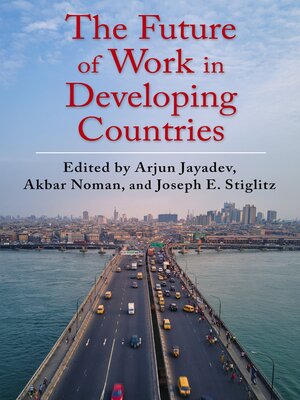The Future of Work in Developing Countries
ebook ∣ Initiative for Policy Dialogue at Columbia: Challenges in Development and Globalization
By Akbar Noman

Sign up to save your library
With an OverDrive account, you can save your favorite libraries for at-a-glance information about availability. Find out more about OverDrive accounts.
Find this title in Libby, the library reading app by OverDrive.



Search for a digital library with this title
Title found at these libraries:
| Library Name | Distance |
|---|---|
| Loading... |
One of the most pressing issues in development today is the employment challenge in low- and middle-income countries. As more young people enter the labor force—and as structural transformation unfolds amid deindustrialization, technological disruption, and global competition—the question of how to create sufficient decent jobs has become central to the economic future of the Global South. Although this is a shared challenge across developing regions, it is particularly acute in Africa, where rapid demographic change and urbanization are colliding with limited industrial expansion.
Bringing together leading international scholars, The Future of Work in Developing Countries examines the employment problem from multiple perspectives. Early chapters develop conceptual frameworks around corporations and the global hierarchy of production. Subsequent contributions investigate the dynamics of structural transformation, the role of firms in linking production and labor to surplus, and the design of industrial and technology policies. Later chapters turn to detailed case studies—especially from Africa—that illustrate the possibilities and limits of different growth paths, and comparative insights from Asia and Latin America provide further perspective.
By combining rigorous theoretical analysis with grounded empirical research, this book demonstrates that employment creation is not an automatic byproduct of growth but a political and institutional project. It offers fresh insights for scholars of development, political economy, and economic history, as well as for policy makers seeking strategies to promote inclusive transformation in Africa and beyond.







